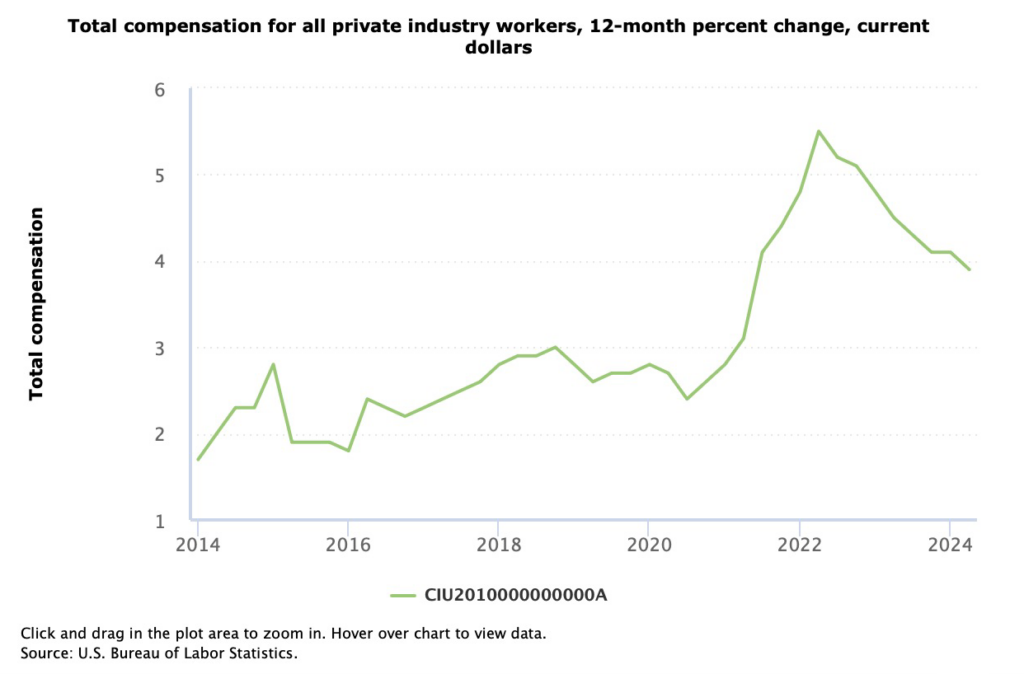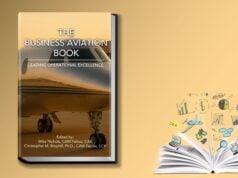
Most business-aviation managers are keen to stay current with the dynamics of the compensation market because they are eager to stay ahead of the curve and take care of their personnel. I have several repeat clients in the compensation consulting business that ask for new deep-dive studies every year to have the latest data at their fingertips. I have other clients who renew their subscriptions to the AirComp Calculator every year for the same reason.
But every once in a while, I hear something like, “We made a decent increase last year, we’re fine for this year. We don’t need the data.” This response stuns me. I bet these same people would never say, “You know, we read enough safety bulletins last year, I think we’re good for this year.”
While you could certainly make the argument that not compensating your personnel adequately could result in a safety issue, that’s not my point here. You don’t always read safety bulletins with the intent to make operational changes as a result. You read them to stay aware of the operational environment. The same can be said for compensation data. It is not static. (See the chart below.) For the last ten years, compensation levels have been rising in private industry at an average of 3.1% per year according to the U.S. Bureau of Labor Statistics (BLS). Sometimes that rate of increase has been lower, like 1.7% annual growth in 2016, or higher, like 5.5% in 2022.

Similarly, the annual change in compensation levels for business aviation personnel have risen as well, often in multiples of the rises in private industry. In the 2024 business aviation compensation survey data, we see that in stark terms. The table below presents a variation on some of the data I discussed in my last article. The average increase column is a series of weighted averages for the job/organizational level groups from the NBAA and Gallagher surveys. The time period of comparison is 2023Q1 to 2024Q1. Over this period the average growth in private industry compensation was 4.1% according to the BLS. You can see the growth in business aviation compensation, for almost all groups, was much larger.
| Job/Org Level Groups | Average Increase from 2023 | Compared to General Population |
| Pilots | 10.73% | 268% |
| Maintenance Personnel | 9.74% | 238% |
| Flight Attendants | 6.54% | 160% |
| Schedulers | 4.49% | 110% |
| Leadership | 10.86% | 265% |
| Mid-Level | 9.37% | 229% |
| Line | 9.84% | 240% |
| All Personnel | 9.7% | 237% |
And here we see, in numerical detail, the importance of staying current with compensation levels. If you’re an aviation manager, your personnel are talking with their peers and they’re getting anecdotal stories that feature increases like these – and keep in mind, these are averages. Obviously there are several data points on the high side, which tend to make up the bulk of the stories out there.
The bottom line here is that aviation managers need to stay plugged in. There is never a time when compensation isn’t changing and while market-driven adjustments might not be necessary on a yearly basis, awareness of the data can make for smarter merit increases and provide the knowledge to deal with the inevitable rumor mill. There are a variety of tools a manager can use to stay plugged in but stick to solid statistical data from surveys or the AirComp Calculator. Stay away from the anecdotal stuff you’ll find on websites or industry magazines.
And Then There Are the Data Deniers…
I’ve been doing compensation consulting for about seven years now and the AirComp Calculator has been in existence for just over four years. On the consulting side, I’ve lost count of the number of deep-dive studies that I’ve done, but it is well into the hundreds. Almost all of these for companies you know: you wear their shirts and shoes, watch their programming, drink their coffee, drive their cars, take their meds, etc. In nearly every study I’ve performed, when I describe my background, credentials, and methodology, even the most resistant executive, aviation manager, or HR professional accepts my results. (In fact, these days I’m hired by HR compensation personnel more often than aviation managers.)
Occasionally, however, I get pushback. Sometimes, the resistance has a quasi-logical rationale, i.e. they might not like my methodology for aging or regionalizing the data, but in most cases, we can talk through that.
But then there are the deniers, the objectors who just don’t like the data and object to the results for purely emotional reasons. This has occurred with the results of two deep-dive studies and with the leadership team of a particular management company when presented with reports from the AirComp Calculator. Their contention usually takes the form of “These numbers can’t be true! They’re too high!”
One of my favorite responses came from a high net-worth individual: “Well, these numbers are higher than those I’m hearing anecdotally.” Translation: “When we brag about how little we pay our pilots in the locker room at the country club, that’s not what I hear.” I love it when people try to compare anecdotal data to statistical analysis. You’d think someone who made their money in finance would know better.
The management company’s response is priceless. It goes something like, “We manage hundreds of aircraft. These numbers don’t match our data so they can’t be true!” I guess the whole concept of circular logic doesn’t occur, nor does the reality that several of their competitors are using AirComp Calculator data.
In both cases, we see the effects of cognitive dissonance. For my part, I’m just a slave to the data and I follow the trails it illuminates. I don’t have a “dog in the fight” for any comp study I conduct nor any report the AirComp Calculator produces. I’m all about the market data and where comparison data intersects with it. This is what makes my voice, that of a disinterested third party, valuable to so many. I’ve been frequently told that my data is the gold standard in the industry, and repeatedly thanked for making compensation data more transparent for everyone. I’m humbled by these remarks and grateful to be of service. And I will also vigorously defend the scientific nature of the process and the data it generates. The deniers are just going to have to get over it.



























































































































